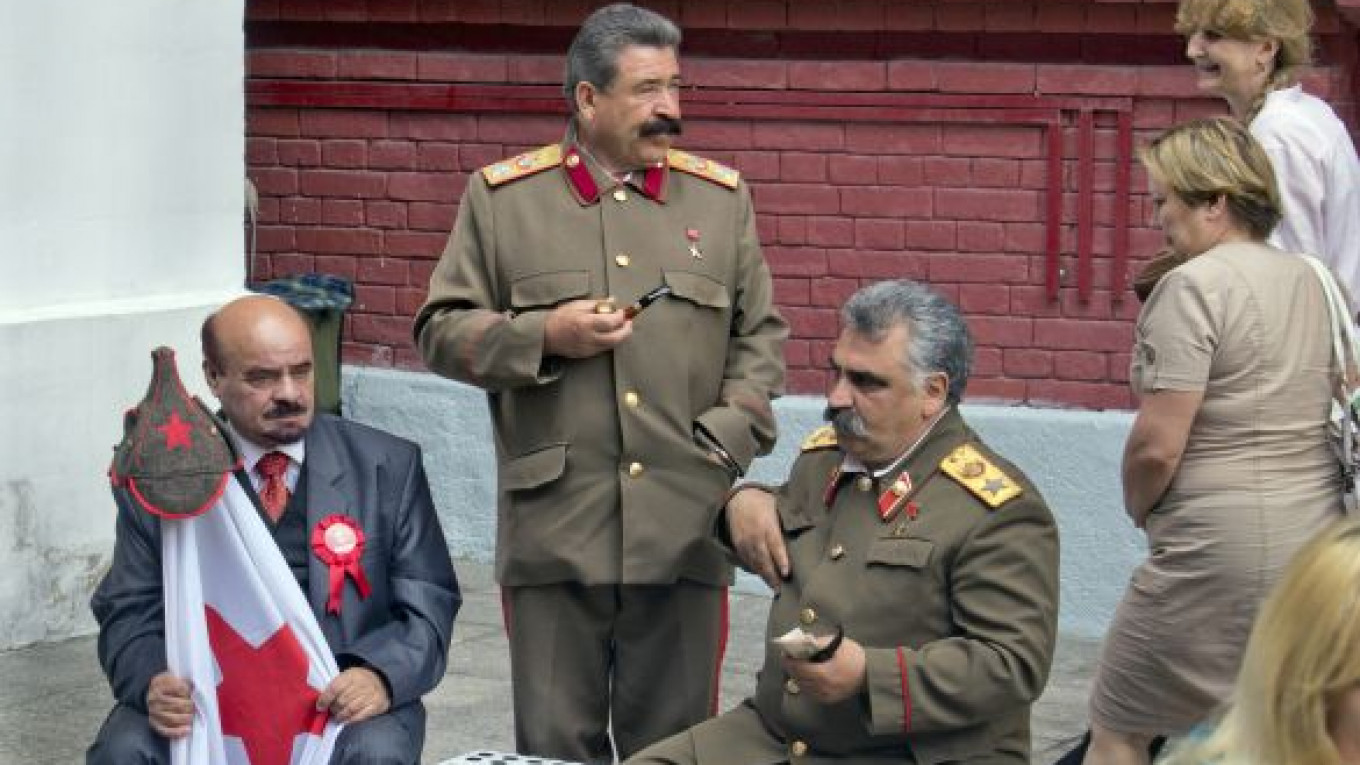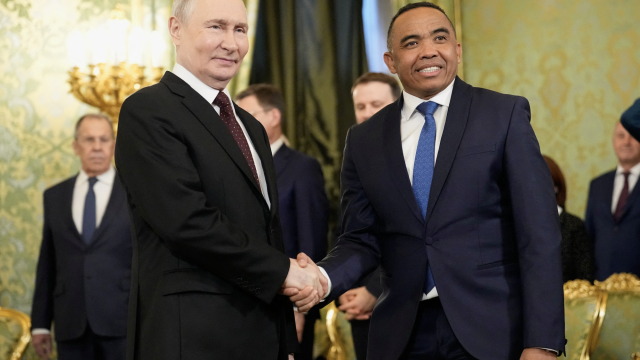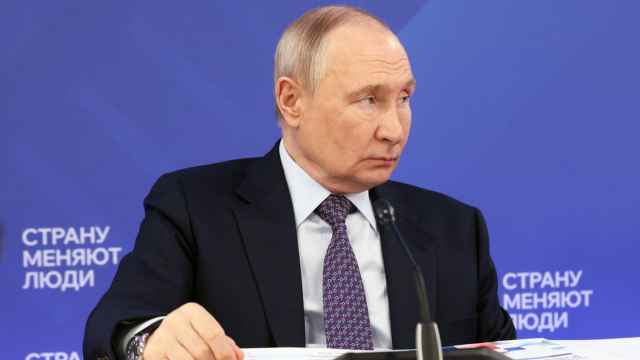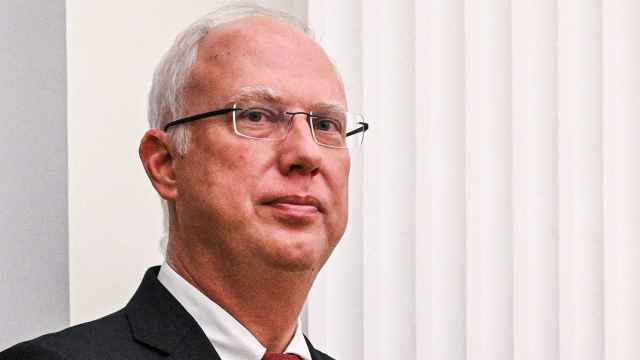An unprecedented opinion survey commissioned by the Carnegie Endowment indicates that Soviet dictator Josef Stalin has remained widely admired in Russia and other former Soviet nations, even though millions of people died under his brutally repressive rule.
The Carnegie report, released Friday, was based on the first-ever comparative opinion polls in Russia, Armenia, Azerbaijan and Georgia. It found that support for Stalin in Russia has actually increased since the Soviet collapse.
The report concluded that attitudes toward Stalin have improved during President Vladimir Putin's 13-year rule, as the Kremlin has found Stalin's image useful in its efforts to tighten control.
Stalin led the Soviet Union from 1924 until his death in 1953. Communists and other hard-liners credit him with leading the country to victory in World War II and making it a nuclear superpower. Others condemn the brutal purges, which killed millions of people.
One of the report's authors, Lev Gudkov, a sociologist at the Levada Center, which conducted the survey, noted that in 1989, the peak of Soviet leader Mikhail Gorbachev's efforts to liberalize the country and expose Stalinist crimes, only 12 percent of Russians polled described Stalin as one of the most prominent historical figures.
In the Carnegie poll last year, 42 percent of Russian respondents named Stalin as the most influential historical figure.
"Vladimir Putin's Russia of 2012 needs symbols of authority and national strength, however controversial they may be, to validate the newly authoritarian political order," Gudkov wrote in the Carnegie report. "Stalin, a despotic leader responsible for mass bloodshed but also still identified with wartime victory and national unity, fits this need for symbols that reinforce the current political ideology."
Putin has avoided open public praise or criticism of Stalin, but he has restored Soviet-era symbols and focused on the nation's Soviet-era achievements rather than Stalinist crimes. Kremlin critics have seen attempts to whitewash Stalin's image as part of Putin's rollback on democracy.
Many in Russia have been dismayed by government-sponsored school textbooks that paint Stalin in a largely positive light and by a reconstruction of Kurskaya metro station that restored old Soviet national anthem lyrics praising Stalin.
In the most recent sign of respect for the dictator, earlier this year the Volgograd regional legislature decreed that the city of Volgograd, which was known as Stalingrad until its renaming in 1961, should once again be known by its old name on days commemorating the historic WWII battle.
In some Russian cities, authorities ordered images of Stalin to be put on city buses as part of festivities.
The Carnegie report revealed that although a high number of Russians have a positive view of Stalin, his era mostly draws negative perceptions, an ambiguity that reflects public confusion, the legacy of totalitarian "doublethink" and a paternalistic state.
An even greater admiration of Stalin was seen in his homeland, Georgia, where 45 percent of respondents expressed a positive view of him.
In Armenia, 38 percent of those polled said their country will always need leaders like Stalin. In Azerbaijan, where respondents viewed Stalin more negatively compared with the three other countries, 22 percent of those polled didn't even know who Stalin was.
A Message from The Moscow Times:
Dear readers,
We are facing unprecedented challenges. Russia's Prosecutor General's Office has designated The Moscow Times as an "undesirable" organization, criminalizing our work and putting our staff at risk of prosecution. This follows our earlier unjust labeling as a "foreign agent."
These actions are direct attempts to silence independent journalism in Russia. The authorities claim our work "discredits the decisions of the Russian leadership." We see things differently: we strive to provide accurate, unbiased reporting on Russia.
We, the journalists of The Moscow Times, refuse to be silenced. But to continue our work, we need your help.
Your support, no matter how small, makes a world of difference. If you can, please support us monthly starting from just $2. It's quick to set up, and every contribution makes a significant impact.
By supporting The Moscow Times, you're defending open, independent journalism in the face of repression. Thank you for standing with us.
Remind me later.






